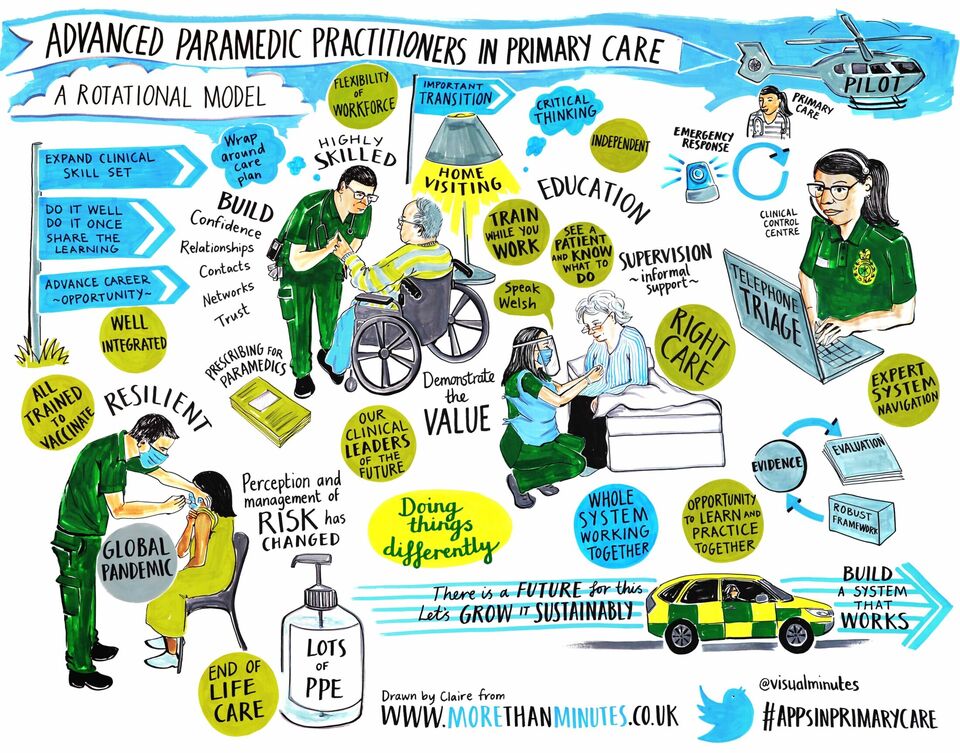Advanced Paramedic Practitioner Programme
Phase I
In 2018 Betsi Cadwaladr University Health Board (BCUHB) and Welsh Ambulance Services NHS Trust (WAST) were jointly awarded Welsh Government Pacesetter funding to design and deliver an innovative three-part rotational model of working. The model saw Advanced Paramedic Practitioners (APPs) rotate between the clinical control centre, solo responding for WAST, and in primary care sites for BCUHB.
The aim of the project, was to examine whether each element of the three-part rotation enhanced clinical practice in the other two parts. A further objective was to assess the creation of additional capacity within primary care settings, and test the assumption that a viable role exists for WAST APPs in the delivery of primary care services.
The project concluded in spring 2022, and a comprehensive service evaluation undertaken alongside the Pacesetter has been able to demonstrate that it is a valid model of deployment for this group of staff and that there were identifiable benefits for patients, WAST, primary care, and the APPs.
This model has now moved to business as usual across North Wales.
The role of the paramedic has been constantly evolving since inception to meet changing demands, including access to higher education pathways leading to clinical career progression. Extended roles, such as advanced clinical practice have opened up new career options for experienced and educated paramedics to work in patient-facing senior clinical roles outside of the traditional paramedic employer, the ambulance service.
The challenge now for any modern ambulance service is how to provide a long career with varied options for the groups of staff that have had significant investment in their professional development; particularly when this development makes them an attractive employee for other health care organisations. Data from England indicates that an increasing number of paramedics are making the choice to work in primary care. There are certainly advantages to the individual paramedic and practices, however the transition to a new work environment may not always be the right move for some, and while a number of paramedics return, the intellectual contribution for those that stay away means ambulance services lose out on the benefits that working in other health sectors can offer.
From a system perspective, this is an inefficient way of delivering healthcare, and organisations that compete for talent against each other may not be able to work closely together to deliver excellent joined up care. The purpose of this Welsh Government funded Pacesetter project was to test an extended rotational working pattern following a successful internal pilot project. This extension was for a small group of advanced paramedic practitioners to include working within primary care. The benefits were assumed to be two-fold, to support workforce sustainability in primary care and to bring the benefits of extended clinical and primary care system knowledge back into the clinical contacts while working within Welsh Ambulance services.
